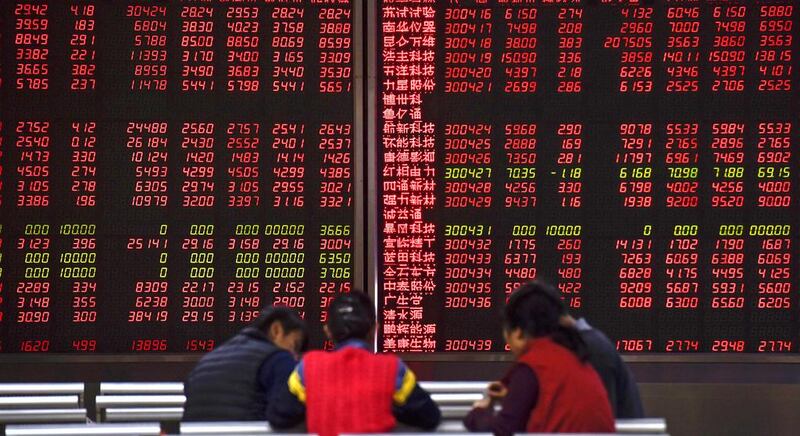Pictet Asset Management, part of the Swiss money management and private banking group Pictet that manages more than 509 billion Swiss francs, (US$538bn) says it remains upbeat on global stocks after this month’s sell off, favoring the Eurozone and Japan.
The asset manager warned however that overall returns from equities will not be as stellar as last year, and a sharper rise in interest rates amid accelerating pace of inflation would warrant a more cautious approach on stocks.
"The market environment has changed, I don't want to sound too bullish," Luca Paolini, the London-based chief strategist at Pictet Asset Management, told The National in an interview in Dubai on Monday. "We are still in a bull market. The macro-economic situation is okay but not improving and inflation is rising. We're a little bit more cautious for the long term."
Global stocks plummeted nearly 6 per cent on aggregate in the first week of February on fears of a quicker pace of US Federal Reserve rate tightening, amid rising inflation and higher bond yields. The drop was exacerbated by quant trading strategies and exchange traded funds that track volatility.
The turmoil was sparked specifically by a strong US labour report on February 2 which investors took as a sign that the Fed would soon bring the longest era of cheap money in the country's history - that's helped prop up global asset prices - to a close. Over the past week however, stocks have clawed back, partially recovering much of their value.
_______________
Read More:
Global stocks fall nearly 6% in worst trading week of two years on fears of higher interest rates
Deutsche Bank’s Junod tells clients to buy stock market dips amid global market turmoil
_______________
While the market is anticipating three interest rate hikes of about 70 basis points this year, Mr Paolini said that he would only start taking a considerably more cautious approach to stocks if the Fed raised interest rates by 100 basis points.
Pictet's chief strategist joins a number of other major European asset managers, such as Deutsche Bank, that have been telling clients to buy the dips, as the global economic growth story remains intact.
Other big investors, such as Ray Dalio, the billionaire head of the world's biggest hedge fund Bridgewater Associates, have been less sanguine. Mr Dalio recently placed $22bn worth of short bets against European stocks, reflecting his conviction for those stocks to decline.
Mr Paoloini said while some companies and sectors were overvalued, there are others - such as the energy, mining and banking stocks - that hold greater potential of returns, especially banks which stand to benefit from rising interest rates.
Besides Europe and Japan, the Swiss asset manager favours emerging markets selectively. Mr Paolini, in particular, likes Russia, developing European countries and Turkey, and said that the political risks in these markets means that they may continue to be cheap for a while. Shares in the UAE, he noted, were among the cheapest in emerging markets, along with Greece.
He was less optimistic about bonds as an asset class due to a decline in their prices in the wake of the rising interest rates in the US and other developed nations. There are, however, some exceptions like longer dated US bonds, such as the 30-year notes, which currently offer more than 3 per cent yield, a rate which he said is attractive.
Pictet's house view is positive when it comes to commodities as an asset class, especially industrial metals such as copper and aluminum as there is strong demand from fast-growing markets like China.
While there have been concerns about China's rising level of debt, Mr. Paolini said that the increase is offset by the fact that China is among the fastest growing economy in the world.





